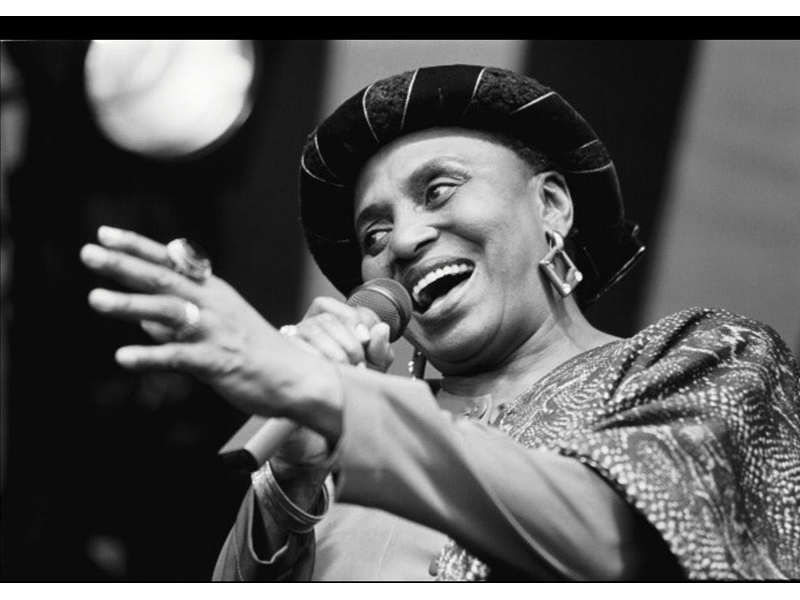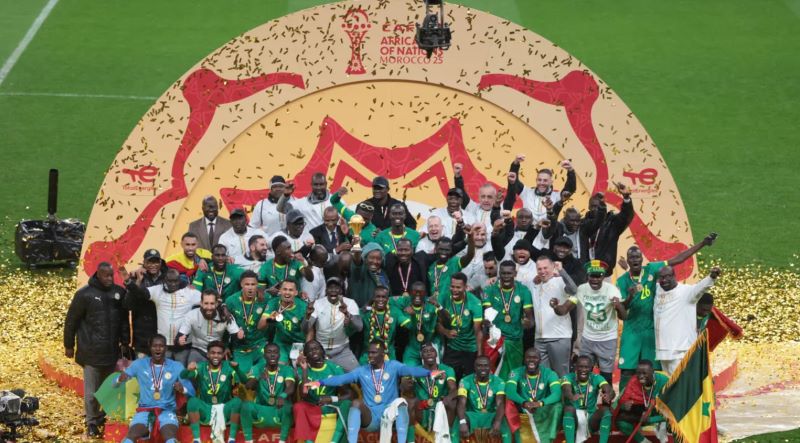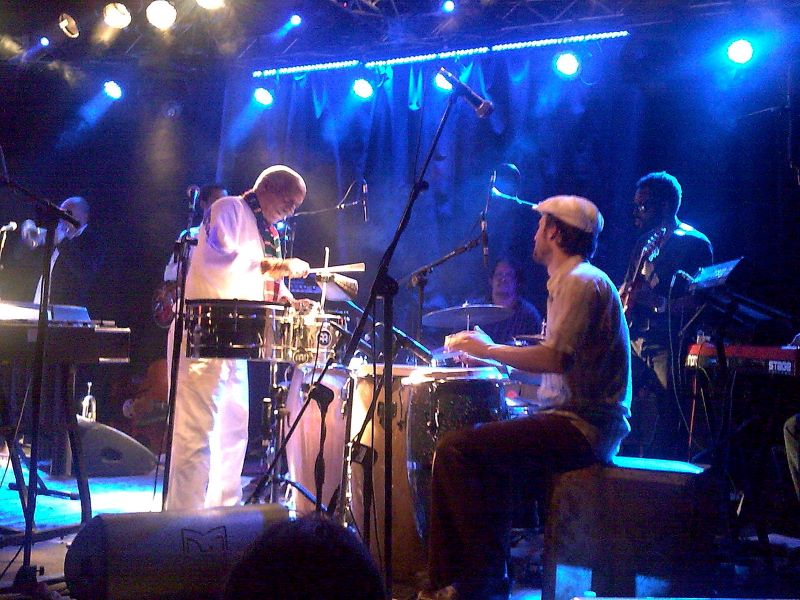Zenzile Miriam Makeba was born on March 4, 1932 in Prospect township, Johannesburg during an economic depression. Her mother was a domestic worker and a sangoma, a traditional healer, her father was a teacher. Makeba’s mother was imprisoned for six months for illegally brewing beer to make money. Makeba was sent to prison with her mother when as she was just 18 days old. Sadly, her father passed away when Makeba was five years old.
Makeba was sent to live with her grandmother at a compound in Riverside, Pretoria, and it was there that she learned how to sing at church. She later moved back to Johannesburg to her mother who was cleaning houses. It was the 1950s when she lived in Sophiatown, Johannesburg, known for its vibrancy and kwela, marabi, and African jazz music scene. and big band music, which became popular at the time.
Makeba began her professional musical career singing covers of popular American songs with the Cuban Brothers. In 1954, at 21, she joined a jazz group, the Manhattan Brothers, who sang a mixture of South African and African-American songs. By then that she began to grow her in reputation, touring South Africa, Zimbabwe, and the Congo with the band until 1957. She even starred in a few films such as the documentary Come Back, Africa, and as the female lead in Broadway-inspired South African jazz opera King Kong, both in 1959.
Makeba was flown out to the Venice Film Festival for her small part in Come Back to personally receive an award for the movie. Makeba was soon in trouble with the apartheid South African authorities because they did not like how the documentary portrayed them. The government revoked her passport and denied her the possibility of returning to South Africa. She was the first Black musician to be exiled from South Africa. Makeba took up refuge in London where she met Jamaican-American singer, songwriter and activist, Harry Belafonte, who helped her to immigrate to the United States.

Living in America, Makeba’s stardom sky-rocketed when she performed for former U.S. President John F. Kennedy at Madison Square Garden in 1962. When she tried to attend her mother’s funeral in the 1960s and realized that her passport had been revoked, she testified about apartheid at the United Nations, and her South African citizenship was taken away from her. In 1965, Makeba won her first Grammy award for An Evening with Harry Belafonte, and when she released her famous song, Pata Pata in 1967 she was the first Black woman to have a Top-Ten worldwide hit.
Makeba recorded a total of four albums in the U.S including her famous song Qogothwane, a.k.a the ‘Click Song’ that you can view at the end of the page. In 1964, she married famous trumpeter and fellow South African, Hugh Masekela. Although the couple divorced two years later, they maintained a close professional relationship. Makeba began to tour Europe, South America, and Africa in the 1970s, after a decline in her popularity in the U.S. Then she married the African-American activist Stokely Carmichael in 1968.

South Africa’s first democratic president, the late Nelson Mandela, with the late legendary Mama Africa, Miriam Makeba.
In the 1980s, while in Europe, Makeba addressed the United Nations’ General Assembly twice, speaking out against apartheid as a Guinean delegate to the United Nations (UN). In 1986, she was awarded the Dag Hammarskjold Peace Prize from the Diplomatic Academy for Peace. In 1987, she joined American folk singer Paul Simon’s highly successful Graceland tour. After Graceland, Makeba was in great demand and went on to perform for heads of state, and the Pope.
When Nelson Mandela was freed in the 1990s and became South Africa’s first democratic president, he encouraged Makeba to return to South Africa. She accepted the invitation and returned, after 31 years in exile, and became a Goodwill Ambassador of the Food and Agriculture Organization of the United Nations.
In 1997, Makeba embarked on her Farewell Tour, and in 1998 toured Africa, the U.S, and Europe, and selling out theatres. Makeba has received honorary doctorates from both South African and international academic institutions. The city of Berkeley proclaimed June 16th to be Miriam Makeba Day and she has received the highest decoration from Tunisia. In 1999, Nelson Mandela presented her with the Presidential Award. In 2005, Makeba announced her retirement from the mainstream music industry.
Makeba did her humanitarian work through her Miriam Makeba Foundation, including the Miriam Makeba Rehabilitation Centre for abused girls. Sadly, Makeba died on November 9, 2008 from a heart attack after a performance at a concert in Caserta, Italy. Mama Africa, a musical about Makeba, premiered to a sold-out crowd in Cape Town in May 2016. It was performed in the United States. A tribute TV show to Makeba called Hommage à Miriam Makeba was curated by Beninoise singer-songwriter and activist Angélique Kidjo.
Source

Boitumelo Masihleho is a South African digital content creator. She graduated with a Bachelor of Arts from Rhodes University in Journalism and Media Studies and Politics and International Studies.
She’s an experienced multimedia journalist who is committed to writing balanced, informative and interesting stories on a number of topics. Boitumelo has her own YouTube channel where she shares her love for affordable beauty and lifestyle content.





